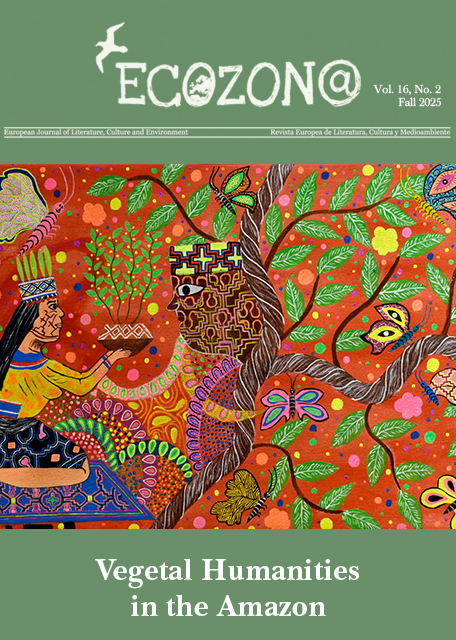Émile Zola’s Climate History of the Second Empire
DOI:
https://doi.org/10.37536/ECOZONA.2020.11.1.3181Parole chiave:
Rougon-Macquart, climate, milieu, Hippolyte Taine, global warmingAbstract
This article looks at Émile Zola’s novel cycle Les Rougon-Macquart and argues that it describes its subject, the Second Empire, as a warming climate tending toward climate catastrophe. Zola’s affinity to the notion of climate is shown to be linked to his poetic employment of the concept of ‘milieu’, inspired by Hippolyte Taine. Close readings of selected passages from the Rougon-Macquart are used to work out the climatic difference between ‘the old’ and ‘the new Paris’, and the process of warming that characterises the Second Empire. Octave Mouret’s department store holds a special place in the article, as it is analysed through what the article suggests calling a ‘meteorotopos’: a location of intensified climatic conditions that accounts for an increased interaction between human and non-human actors. The department store is also one of the many sites in the novel cycle that locally prefigure the ‘global’ climate catastrophe of Paris burning, in which the Second Empire perishes.
Downloads
##submission.downloads##
Pubblicato
Fascicolo
Sezione
Licenza
Authors who publish with this journal agree to the following terms:
a) Authors retain copyright and grant the journal right of first publication with the work simultaneously licensed under a Creative Commons Attribution License that allows others to share the work with an acknowledgement of the work's authorship and initial publication in this journal (CC BY-NC for articles and CC BY-NC-ND for creative work, unless author requests otherwise.
b) Authors are able to enter into separate, additional contractual arrangements for the non-exclusive distribution of the journal's published version of the work (e.g., post it to an institutional repository or publish it in a book), with an acknowledgement of its initial publication in this journal.
c) Authors are permitted and encouraged to post their work online (e.g., in institutional repositories or on their website) prior to and during the submission process, as it can lead to productive exchanges, as well as earlier and greater citation of published work (See The Effect of Open Access).










